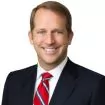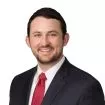Overview of the Decision
On April 27, 2020, the US Supreme Court ruled by an 8-1 decision that the federal government must pay billions of dollars to health insurers who sold consumer policies on exchanges under the Affordable Care Act's ("ACA") "Risk Corridor" program.1 The ruling reversed the Federal Circuit's holding that Congress impliedly repealed the government's "shall pay" obligations and is a major victory for health insurers, who sought over $12 billion in recovery from the federal government.
Risk Corridor history and the Court's ruling
In delivering the opinion, Justice Sotomayor succinctly summarized the Court's lodestar: "These holdings reflect a principle as old as the Nation itself: The Government should honor its obligations."2
The now-expired Risk Corridor program was intended as a financial incentive Congress offered insurers to stabilize premiums and encourage them to sell affordable individual and small group health insurance policies on the ACA exchanges. It limited the insurance companies' profits and losses from the individual and small-group markets during the exchanges' first three years (2014-2016) by requiring that profitable plans "shall pay" the Department of Health and Human Services ("HHS"), who in turn "shall pay" plans that sustained market losses.3 In December 2014, Congress passed appropriations rider legislation barring such Risk Corridor payments as, among other things, a misuse of taxpayer funds. As a result, HHS collected the profits owed under the Risk Corridor program but only paid out a small fraction of amounts owed to insurers who sustained losses, resulting in a deficit of over $12 billion.
The Supreme Court agreed with insurers that the government was obligated to make full Risk Corridor payments. In reaching this decision, the Court found persuasive that nothing in the ACA's text required the program to be budget neutral and that the ACA didn't dictate that payments to unprofitable insurers depended on how much the government collected from insurers who fared better. The Court concluded that §1342 of the Affordable Care Act established a money-mandating obligation, that Congress did not repeal this obligation using appropriations riders, and that insurers may sue the government for damages in the Court of Federal Claims.
Justice Alito was the lone dissent, citing uncertainty regarding whether federal law provides the insurers a legal right to court and damages from the federal government. He further noted, "the Court infers a private right of action that has the effect of providing a massive bailout for insurance companies that took a calculated risk and lost."4
Effect of the ruling
The ruling will not impact all insurers the same way. Procedurally, the Supreme Court reversed the Federal Circuit's decision and remanded the cases to the Court of Federal Claims for further proceedings based on the ruling. Beyond those involved in this ruling, many additional insurers have pending lawsuits before the Court of Federal Claims over the $12 billion in owed payment which will also take time to process—especially in light of the COVID-19 pandemic.5 The differences among these insurers, ranging from their qualifications under various provisions of the ACA to their current solvency, will likely affect how the funds are distributed.
This decision resulted in a resounding win for insurers on an ACA issue, but the ACA faces further legal challenges. Later this term, the Supreme Court will consider challenges over the ACA's contraceptive mandate. Next term, the Supreme Court will consider the constitutionality of ACA in the California v. Texas case, Docket 19-840.
Footnotes
1 Maine Cmty. Health Options v. United States, 140 S. Ct. 103, 205 L. Ed. 2d 20, 590 U.S. ____ (2020), consolidated with Land of Lincoln Mut. Health Ins. Co. v. United States, 140 S. Ct. 493, 205 L. Ed. 2d 315 (2019) and Moda Health Plan, Inc. v. United States, 2019 WL 6210520 (U.S.) (U.S.,2019);.
2 Maine Cmty. Health Options, 590 U.S. ____ at 30.
3 See § 1342, 124 Stat. 211.
4 Maine Cmty. Health Options, 590 U.S. ____ at 33 (Alito, S., dissenting).
5 For the latest on the Covid pandemic, see Seyfarth's COVID-19 Resource Center.
The content of this article is intended to provide a general guide to the subject matter. Specialist advice should be sought about your specific circumstances.


